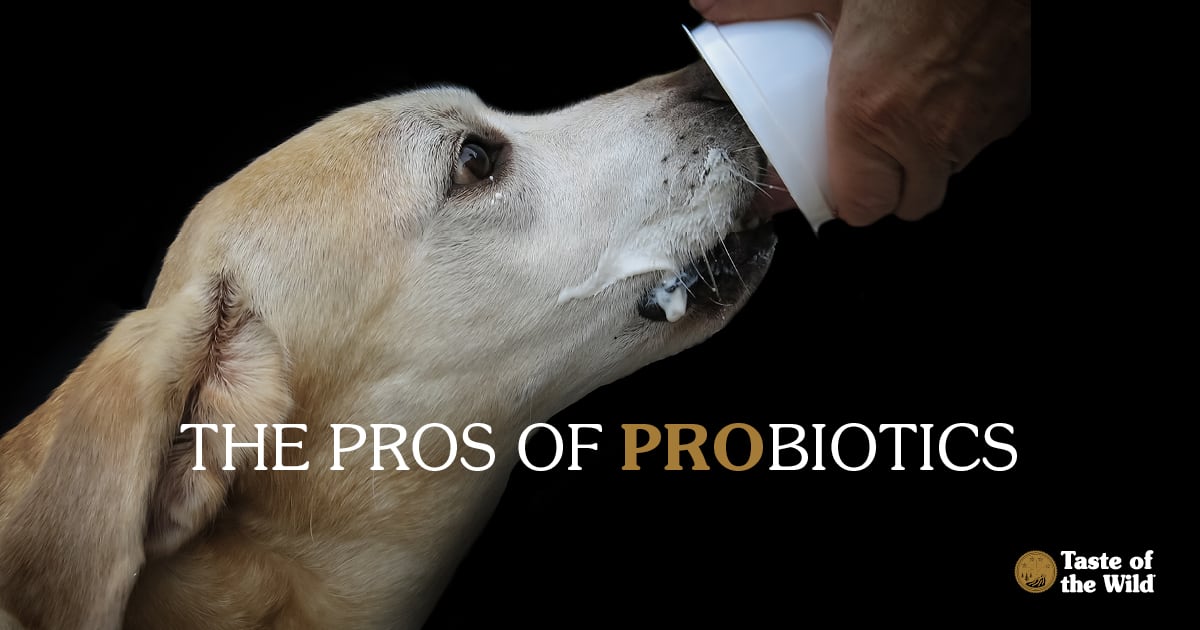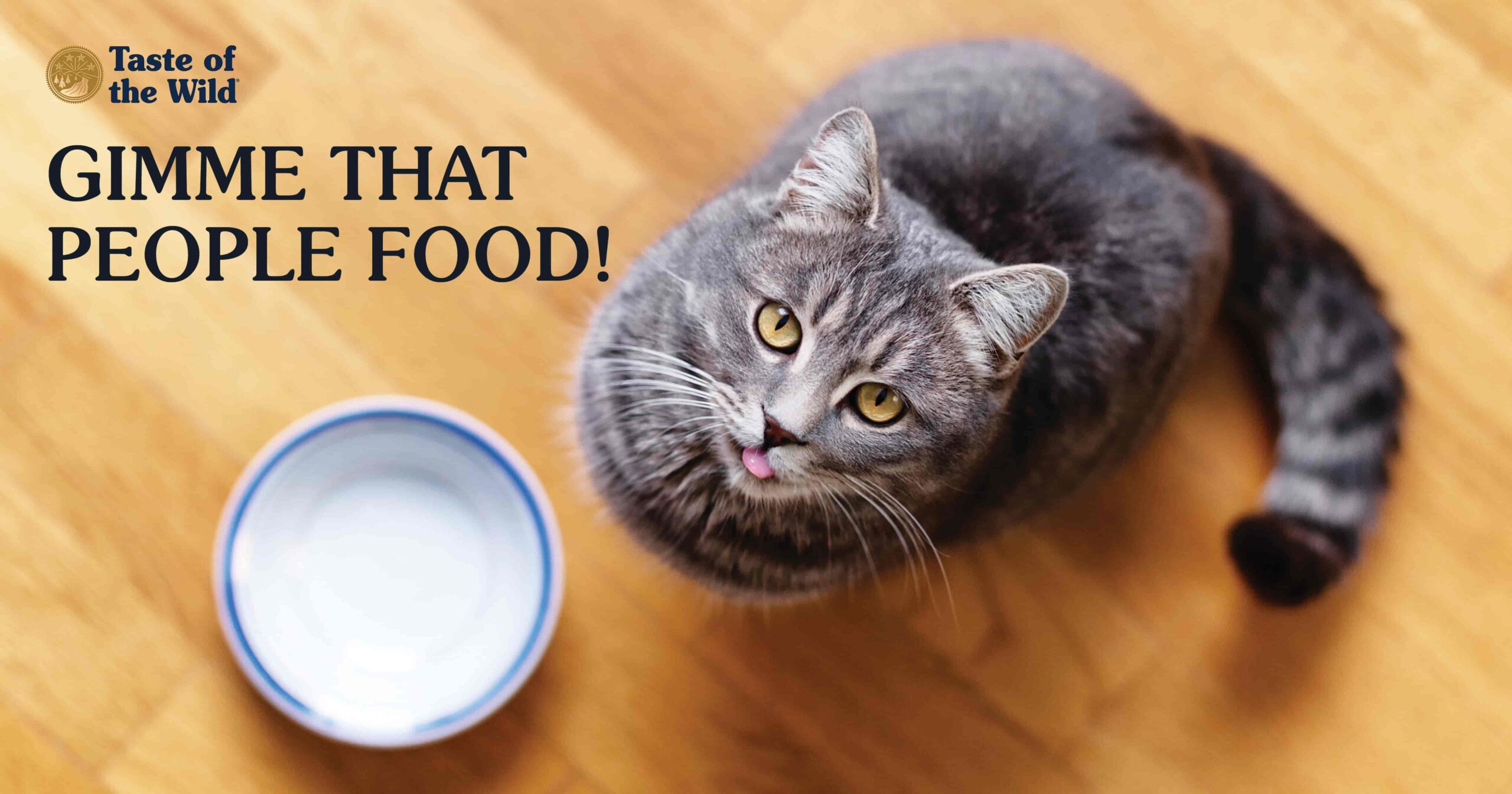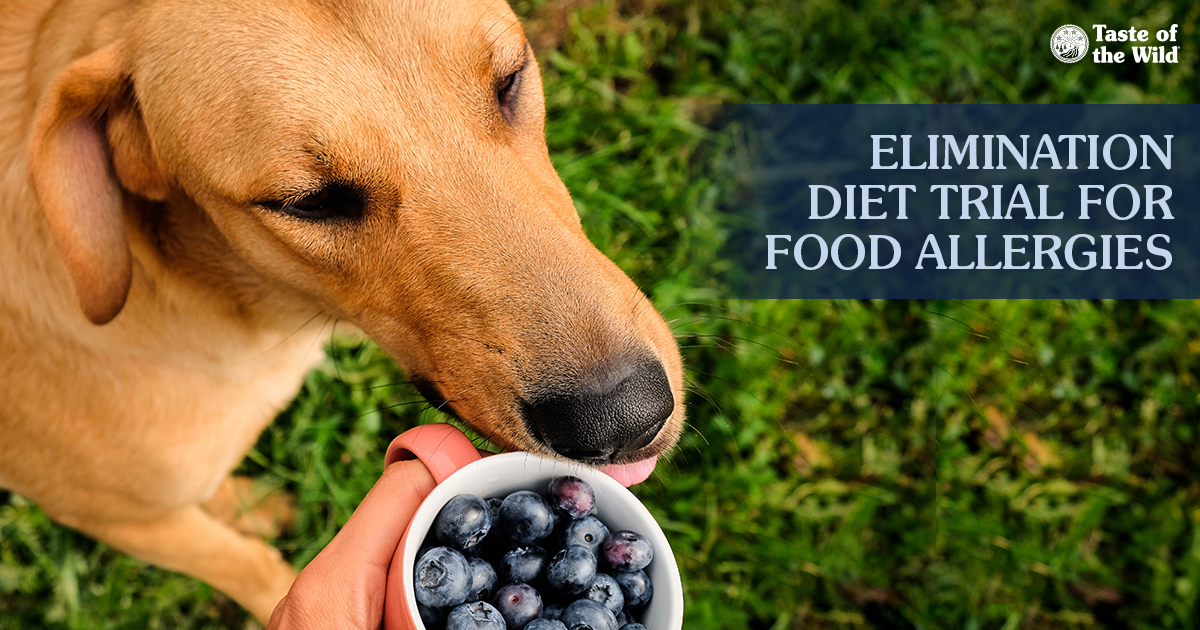Probiotics Maintain the Natural Balance for Your Pet
Thursday, October 27, 2016 | Nutrition

The digestive tract is more than a conveyor belt for processing food. It’s also the largest immune organ in the body. As such, it’s believed to play an important role in your pet’s overall immune function and health. And probiotics are essential to helping it do the job.
Much of the digestive tract’s ability to affect immunity depends on the balance of beneficial and potentially harmful bacteria inside the digestive tract. Normally, these bacteria help digest food, absorb nutrients, support intestinal function, manufacture vitamins and modulate the immune system.
But the natural balance of these bacteria in your pet can be disrupted by a number of factors such as sudden diet changes, garbage ingestion, the stress of boarding or travel, and even antibiotics. This can cause an increase in harmful bacteria at the expense of beneficial bacteria, leading to diarrhea and sometimes vomiting.
Restoring the balance with probiotics
Oral administration of live, beneficial bacteria, or probiotics, in the right amounts may help boost the number of beneficial bacteria in the digestive tract and reduce the number of harmful bacteria. Although scientists are still learning about probiotics, studies in both human and veterinary medicine have shown promising results. Human studies, for example, indicate that probiotic administration may help with intestinal disease, diabetes, some skin allergies, weight loss, liver disease and more.
The nutritional benefits for pets may also extend beyond resolving diarrhea. One study in puppies, for example, showed that probiotics may help improve their immune response to vaccination.
How probiotics work
While probiotics are still being studied, it has been suggested that they work by making the intestinal environment less welcoming for harmful bacteria. These beneficial bacteria may make the surrounding area more acidic, take up adhesion sites on the intestinal lining, use up more nutrients and even produce compounds that might destroy the harmful bacteria.
All probiotics aren’t the same
The next time your pet has diarrhea, you might be tempted to feed him grocery store yogurt, with active bacterial cultures. But the same probiotics that may help people might not do the trick for animals. There is some evidence that species-specific probiotics, containing the particular strains of bacteria normally found in the dog or cat’s digestive tract, may deliver better results.
Of course, it doesn’t matter if the probiotic contains the right bacteria if they can’t survive manufacturing, storage or the acids in a pet’s gastrointestinal tract. So probiotics must undergo rigorous testing to ensure they’re viable in the animal. Testing is also important to make sure the bacterial strains are safe for the animal, capable of enhancing the bacterial balance in the gut, and ideally, able to positively impact the immune system.
Probiotics for pets are typically available in pill and powder form, or may be part of a nutritious diet. For example, every Taste of the Wild dry canine formula is enhanced with K9 Strain® Probiotics and every Taste of the Wild dry feline formula contains Viables® Probiotics. These strains are added after the cooking process to help ensure the beneficial bacteria are alive and able to support healthy digestion for your pet.
As always, if you have any questions about how probiotics can help your pet, talk to your veterinarian.
The information in this blog has been developed with our veterinarian and is designed to help educate pet parents. If you have questions or concerns about your pet’s health or nutrition, please talk with your veterinarian.




